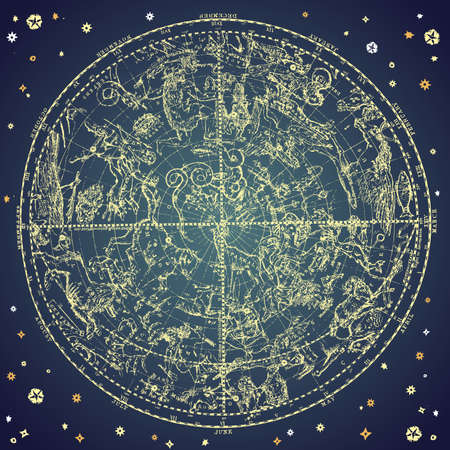A Very British Equinox: A Whistlestop History Tour
Ah, the equinox—a time when day and night strike a rather polite agreement to be equally miserable, at least in the UK’s reliably overcast skies. While most countries might celebrate the balance of light and darkness with sun salutations or actual sunshine, Britain prefers its equinoxes served with a side of drizzle, mysterious rituals, and just enough eccentricity to keep the neighbours guessing. Historically, this astronomical event has been less about celestial harmony and more about druids in white robes gathering at Stonehenge, pagans making offerings to deities who’ve clearly taken an extended sabbatical somewhere sunnier, and Victorians attempting to “modernise” ancient traditions—usually by writing stern letters to The Times or inventing new hats. In true British fashion, our relationship with the equinox is as much about weather complaints as it is about astrological awe. So, pop on your wellies and prepare for a journey through time—cloud cover guaranteed.
2. Stones, Circles, and Sheep: Sites of Celestial Significance
If you thought the British countryside was just rolling hills, suspiciously weathered sheep, and the odd pub that closes at 3pm for no discernible reason, think again. Nestled among those damp meadows are some of the most mind-bogglingly mysterious stone circles in Europe—monuments that have stood witness to more equinoxes than your nan’s had hot dinners. But what exactly were our ancient ancestors up to? Stargazing? Ritualistic Morris dancing? Or perhaps they simply enjoyed the architectural challenge of stacking rocks with all the precision of a tipsy builder after last orders?
The Usual Suspects: Stone Circles with Star Power
| Stone Circle | Location | Equinox Connection |
|---|---|---|
| Stonehenge | Wiltshire | Aligns with sunrise/sunset during solstices & equinoxes (and attracts druids in questionable robes) |
| Avebury | Wiltshire | Bigger than Stonehenge (size matters), believed to mark solar/lunar events, excellent for sheep photobombs |
| Castlerigg | Cumbria | Packed with scenic views and theories about celestial alignments (or prehistoric picnic spots) |
| Callanish Stones | Isle of Lewis, Scotland | Associated with lunar cycles, but locals say it’s just a good place to lose your wellies in the mist |
Astronomy or Just Good Old British Weather?
The evidence is as murky as a November morning on Dartmoor. Some scholars wax lyrical about precise equinox alignments, suggesting a calendar system sophisticated enough to make Google Calendar blush. Others reckon Neolithic Britons just liked making large-scale garden ornaments—because what else do you do before Netflix was invented?
Sacred Cows—and Even More Sacred Sheep
No discussion of ancient sites would be complete without mentioning the livestock. Sheep have always been key witnesses at these sites, grazing nonchalantly as sun-seekers assemble each spring and autumn. Are they guardians of cosmic secrets or just looking for greener grass? Either way, don’t ask them—they’re notoriously tight-lipped.
So, next time you’re wandering through a windswept stone circle during the equinox, ponder this: are you standing in an ancient astronomical observatory, or just Britain’s earliest example of landscape art? The stars—and possibly the sheep—aren’t saying.

3. Wassailing, Well-Dressing, and Other Equinoctial Oddities
If you thought the British just quietly sipped their tea and waited for the equinox to pass by like a polite weather front, think again. The UK has a rich (and occasionally tipsy) tradition of welcoming spring and autumn equinoxes with rituals that range from the charmingly eccentric to the downright bonkers—often accompanied by enough cider to keep an entire orchard in business. Let’s pop on our most ridiculous hats (it’s tradition, after all) and dive into some of these uniquely British celebrations.
Wassailing: Singing to Trees (and Possibly Confusing Your Neighbours)
Forget serenading your sweetheart—here in Britain, it’s the apple trees that get all the love during the equinox. Wassailing is an age-old ritual where locals gather in orchards, swig generous quantities of cider, and belt out songs to encourage a bumper apple harvest. If you’ve never seen your local vicar waving toast at a tree while wearing a hat festooned with ribbons, are you even British? The astrological twist here? Many believe that aligning this ritual with celestial events like the equinox boosts its potency—because nothing says “cosmic power” quite like cider-fuelled karaoke among the branches.
Well-Dressing: When Wells Get Glamorous
In certain corners of Derbyshire and Staffordshire, wells aren’t just for wishing or dramatic BBC period dramas. During the equinox, villagers painstakingly decorate springs and wells with elaborate mosaics made from flower petals, seeds, and bits of moss—transforming humble water sources into full-on floral supermodels. Historians suspect this tradition is a heady blend of pagan reverence for water spirits and Christian thanksgiving for clean drinking water, all conveniently timed with celestial shifts. Bonus points if you spot anyone in a bowler hat admiring their handiwork while quoting horoscopes.
Morris Dancing and Equinoctial Accessories
No equinox celebration would be complete without Morris dancers jingling through village greens like caffeinated mayflies. White shirts? Check. Bells on knees? Check. A selection of hats so wild they’d make Ascot blush? Absolutely. These performances are more than just a spectacle; they’re thought to stir up earth energies during periods of cosmic transition (or perhaps just startle passing ramblers). If astrology teaches us anything, it’s that planetary alignments are best marked with rhythmic stick-bashing and vigorous hanky-waving.
Equinoctial Oddities: The British Way
From well-dressing ceremonies that flirt shamelessly with both astrology and horticulture, to cider-drenched wassails where trees are serenaded under the watchful gaze of constellations, Britain does the equinox in style—and rarely with any sense of moderation. So next time you spy an inexplicably decorated well or hear distant singing from an orchard at dusk, don’t be alarmed: it’s probably just another equinoctial oddity, performed under starlit skies by people wearing more hats than strictly necessary.
4. Astrology for the Skeptical Brit
Ah, astrology: the cosmic scapegoat for every questionable life choice since time immemorial, and a favourite subject of British eyebrow-raising. When it comes to equinox rituals in the UK, one might imagine ancient druids earnestly consulting the stars—or more likely, modern Brits reading horoscopes over a cuppa, rolling their eyes so hard they nearly see Uranus. But whether you’re a true believer or just in it for the memes, astrology has long had its sticky fingers in the equinox pie.
The Influence of Star Signs on Equinox Traditions
While some folks genuinely believed that the spring equinox was the perfect moment to consult the stars for agricultural success or romantic prospects, others felt compelled to participate simply because “that’s what one does.” For those on the fence (or sitting firmly atop it with a pint), here’s how star signs allegedly mingled with traditional practices:
| Star Sign | Traditional Equinox Activity | Skeptical British Response |
|---|---|---|
| Aries | Leading processions, starting new ventures | “Oh look, another excuse to shout at people.” |
| Pisces | Meditation by rivers or ponds (preferably not falling in) | “Right, so staring at water counts as spiritual now?” |
| Taurus | Baking bread and feasting | “Any ritual involving carbs is fine by me.” |
| Gemini | Storytelling and gossiping at gatherings | “You mean Tuesday night down the pub?” |
Horoscopes: The Equinox Edition
The British relationship with horoscopes is best described as bemused tolerance. Each equinox brought forth predictions promising everything from bumper crops to romantic entanglements—delivered with all the certainty of a weather forecast in April. Still, many couldn’t resist checking what fate (or The Daily Mail) had in store.
A Dash of Dry English Disdain
If you ever want to witness peak British scepticism, mention Mercury retrograde at an equinox gathering and watch as participants nod politely while mentally composing sarcastic tweets. Yet, even amidst this collective side-eye, astrology continues to be part of the seasonal conversation—if only as a running joke between sips of tea and muttered comments about Saturn’s “bad attitude.” In summary: whether you believe your destiny is written in the stars or simply prefer to blame them for your dodgy decisions, astrology remains a quirky thread in the grand tapestry of UK equinox traditions.
5. Modern Mishmash: Equinox Celebrations in Contemporary Britain
If you thought ancient druids had the monopoly on quirky equinox rituals, think again. Fast-forward to 21st-century Britain, and you’ll find the spring and autumn equinoxes honoured with a hearty blend of tradition, trend, and a dash of British wit. Forget about solemn processions at Stonehenge (well, not entirely—they’re still keen on those), because today’s Brits have added their own unique spin to celestial observance.
Instagram or It Didn’t Happen
The modern Brit’s primary tool for equinox celebration? Their smartphone. As the sun rises over rolling hills or slightly disappointing city skylines, Instagram feeds explode with #EquinoxSelfies and artsy shots of daffodils bravely poking through last week’s rain. After all, if you haven’t posted it online with an inspirational quote about “balance,” did you even experience the equinox?
Yoga in the Park: Ancient Practice Meets British Weather
In true astrological spirit (and sometimes questionable weather), yoga mats are rolled out across parks nationwide. Nothing says “honouring the cosmos” quite like attempting downward dog while being observed by a suspicious squirrel and dodging puddles left by the ever-generous British drizzle. Still, there’s something undeniably magical about saluting the sun—especially when it makes a rare appearance in March or September.
The Full English: A Grounding Ritual
Of course, no UK-based ritual would be complete without food. Enter: the full English breakfast. While not exactly listed in any ancient druidic scrolls, it has become a grounding tradition for many—a post-yoga reward or simply an excuse to eat one’s bodyweight in beans and black pudding under the noble guise of “celebrating equilibrium.”
A Touch of Old, a Dash of New
Today’s equinox festivities are a glorious mishmash—part spiritual awakening, part social media event, part fry-up marathon. Whether you’re meditating at dawn or just enjoying an extra-long lie-in because “the day and night are equal,” contemporary Britain proves that honouring the equinox is less about strict tradition and more about creative interpretation—with plenty of humour thrown in for good measure.
6. The Equinox, Explained (Sort of): Scientific and Satirical Views
Ah, the equinox: that magical moment when day and night are supposed to be perfectly balanced, like a set of British scales before you try to weigh your Christmas pudding. Astronomers will wax lyrical about the Sun crossing the celestial equator—lovely stuff if you’re into celestial mechanics or have a telescope gathering dust in your attic. But let’s not get bogged down by facts; we’re British, after all. According to media myths, the equinox is when druids emerge from hibernation, Morris dancers become temporarily trendy, and supermarkets push their “seasonal” hot cross buns (despite it being neither Easter nor particularly warm).
The Science Bit (Briefly)
Technically, during the equinox, Earth isn’t tipping its hat too much towards or away from the Sun. This means we get roughly equal daylight and darkness, which sounds nice in theory. In practice? Expect drizzle at dawn and a stubborn cloud cover that ensures you’ll never see that “perfect sunrise” Instagram keeps promising.
Astrological Antics
If science feels a tad dry, astrology offers its own spin: apparently, the equinox is when cosmic energies align for self-reflection, new beginnings, or at least an excuse to burn some sage and blame Mercury for forgetting your umbrella. British tradition adds a layer of skepticism with a dash of tea—because if there’s one thing more unpredictable than astrology, it’s whether your local forecast will match the star signs or just rain on everyone’s parade.
The Weather Conundrum
Of course, no discussion of UK equinoxes would be complete without lamenting our national pastime: moaning about the weather. While the rest of Europe might mark the equinox with floral garlands and outdoor revelry, here we’re usually found dashing indoors with soggy socks and muttering about how “it’s meant to be spring now.” The celestial calendar says “balance,” but British skies say “bring a brolly.”
In conclusion, whether you approach the equinox with scientific precision, astrological flair, or just a healthy dose of sarcasm about the weather app’s latest betrayal, remember: in true UK fashion, any excuse for a cup of tea—and perhaps a ceremonial biscuit—will do nicely as you welcome in the new (damp) season.


